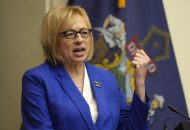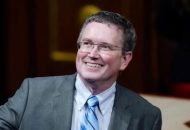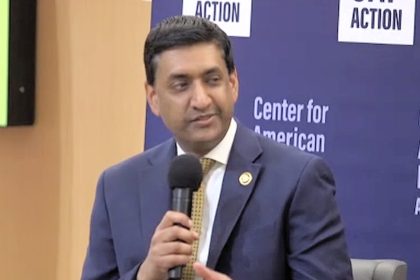Is Income-Driven Repayment Contributing to Federal Student Loan Payment Problems?

WASHINGTON — Student loan forgiveness has been a topic of conversation as the Biden administration continues to consider proposals for alleviating student loan debt, but in the absence of any news on that front, borrowers are starting to get worried as federal student loan repayment is set to resume on September 30, 2021.
Even prior to the pandemic, 20% of federal student loans were in default, and while interest accruals and payments on federal student loans have been suspended for roughly 18 months, loan servicers and analysts are predicting perhaps even worse loan repayment outcomes as many are expected to struggle to meet their loan obligation when repayment resumes.
Panelists at a recent discussion of the non-profit Bipartisan Policy Center blamed an overly complicated federal student loan system with a confusing array of repayment plans, each with varying terms, for much of the nation’s current problems with student loan debt repayment. Ideas were offered on how best to support borrowers moving forward as well as how to improve loan repayment outcomes.
“Given the hardships and repayment concerns, policymakers may [extend the repayment suspension] but whether or not [this happens], there are some proactive actions the Department of Education needs to be taking now,” offered Sarah Sattelmeyer, project director for Education, Opportunity, and Mobility at New America. Among those she listed: focusing on those who were struggling before the pandemic and the most at risk of delinquency and default; providing additional flexibilities to borrowers, and requiring that loan servicers have an appropriately skilled workforce in place so that they are ready to work with borrowers when payment resumes.
But in addition to staffing and support, programmatic fixes may need to be taken into consideration, and some argue that the pandemic’s pause may be just what was needed to eliminate any dysfunction of the current system.
“Now is the time, before we turn on payments, to think about the ways we fix the system,” said Kat Welbeck, deputy director of the Advocacy and Civil Rights Counsel at the Student Borrower Protection Center. “We need to think about, are we doing the things we need… to make sure borrowers are actually able to make their payments?”
Loan servicers are typically relied on to discuss repayment plan options and offer estimates to borrowers on how much they will repay monthly and overall on their federal student loans.
There are a handful of different loan repayment plans depending on the type of loan a borrower was granted, yet they fall within two general types: set-amount repayments and income-based repayments. Although borrowers may select or be assigned a repayment plan when they first begin repaying their federal student loans, these plans can be changed by the borrower at any time, for free.
Set-amount repayment plans divide the loan into payments of a fixed amount to ensure the loan is paid off over a certain amount of time, usually ten years.
Income-based repayments are for those with high debt relative to income. Servicers will work with borrowers to set payments somewhere between 10% to 15% of the borrower’s income, with payments recalculated yearly, so that they won’t pay more than they would have paid under the standard ten-year set-amount plan. However, there is also a potential perverse incentive provision that any outstanding balance on the loan during income-based repayment will be forgiven if the borrower hasn’t repaid their loan in full after 20 years or 25 years, depending on when they received their first loans.
“In some ways, income-driven repayment is the solution, but in others, it’s the symptom,” suggested Scott Buchanan, executive director of the Student Loan Servicers Alliance, speaking about poor loan repayment outcomes.
“We need higher education to be less risky for students, not less expensive,” said Beth Akers, resident scholar at the American Enterprise Institute. “Income-driven repayment, in theory, does just that, but in practice… it’s an absolute mess for even people who are experts in the field to navigate.”
While she said income-driven repayment may be a means to stop high rates of loan default, it often is politicized because it is difficult for the federal government to program well since analysts have limited information. They can study repayments only in snapshots of time, and don’t have any comprehensive analysis to fully understand how people are using the program.
Additionally, the Department of Education, which administers student loans, doesn’t actually know how much a borrower is earning; this information comes from the borrower to the loan servicer. And Akers said it would be a “huge lift for the Agency to verify income.”
While some suggest that a fix may be to offer either compulsory or voluntary automated paycheck deductions, others disagree, saying “income is not always the sole factor in measuring somebody’s economic hardship.” [Welbeck]
Regardless, there is very real concern that loan servicers “are going to be the scapegoat in all of this” [Akers] as they continue to navigate an evolving and dynamic situation when repayments resume.
“We are handed the toolkit that Congress decides to provide us,” said Buchanon. “Until we know… when stages are going to occur in the resumption [of payments], it’s very difficult to lay out a plan.”
He admitted that clearing up any confusion about eligibility as well as simplifying income-based repayments would help servicers to perform their jobs and match borrowers to their best repayment opportunities.
“But,” he said, “the bigger picture is, what does it tell us about the system when half of borrowers are in income-driven plans?”
























